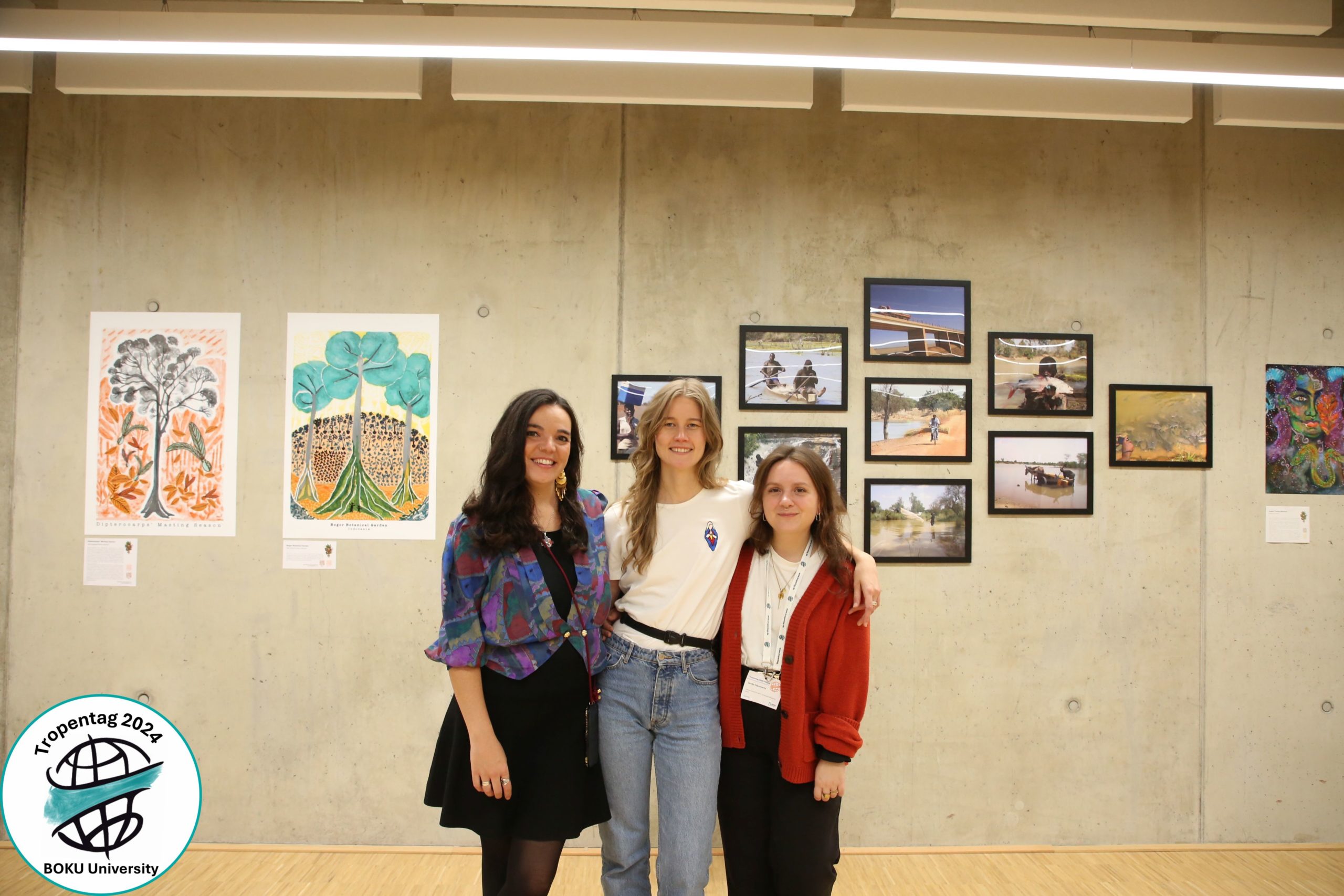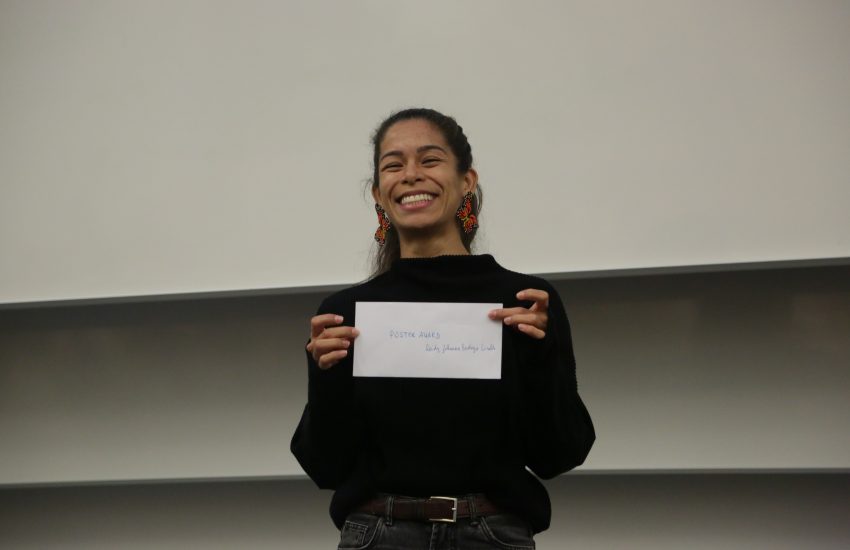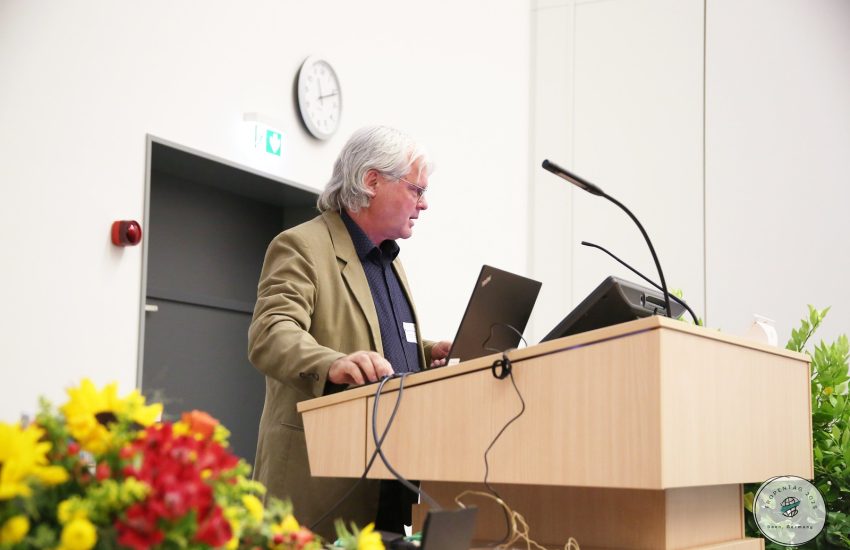The Role of Arts in Science
Arts can serve as a powerful medium for deepening the scientific process and communicating complex information to the wider public. Art in science is therefore a central subject at this year’s Tropentag. The conference program includes a variety of activities, bringing an artistic twist to science. Tropentag offers an artwork exhibition, audiovisual screenings, a film festival, and a workshop on art-based scientific practices and communication. To gain a deeper understanding of what art in science can entail, we visited the workshop ‘Art-based & participatory research methods for integrating community voices’ provided by Mexican Phd Giovianna Chavez-Miguel (Humboldt University of Berlin, International Potato Center), Janika Hämmerle (Humboldt University of Berlin), Maria Schmiedbauer (Humboldt University of Berlin) and Sophia-Marie Horvath (University of Natural Resources and Life Sciences Vienna).
The workshop started with an unconventional exercise: participants were asked to draw themselves and then share their sketches with the group. This activity created a creative and intimate atmosphere – a unique way for participants to introduce themselves at a scientific conference.
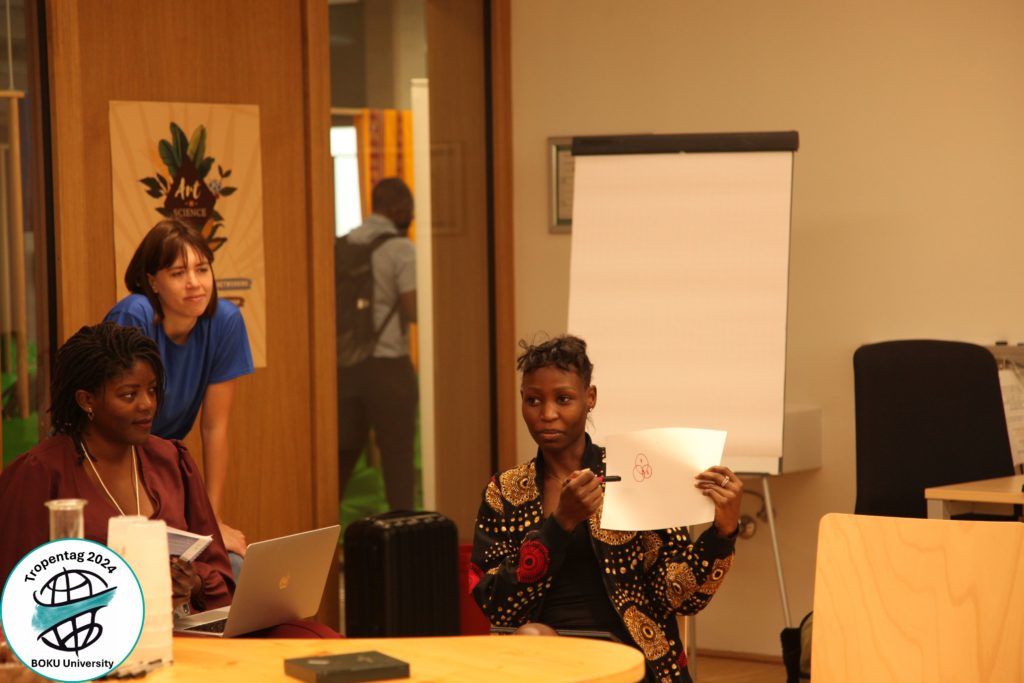
After getting to know each other, the workshop shifted to the subject of knowledge devaluation – the idea that certain types of knowledge, especially those grounded in emotion, sensory experience, and embodied practices, are often undervalued in science. This asymmetry is especially evident between the Global North and South, where power hierarchies influence whose knowledge is seen as legitimate.
Multi-sensorial science
The workshop emphasized how the integration of art into science can help address these gaps. Art, the speakers explained, is a method of research in itself. The creative process opens up space for exploring complexity and uncertainty and can evoke emotions that lead to more holistic solutions. Art moves beyond data and facts, incorporating emotion and human experience, thus broadening our understanding of the world.
One powerful example Chavez-Miguel shared was her “potato project,” a four-year film project set in the Peruvian Andes, where she studied the lives of potato farmers. Her film, Guardians of the Potato, became more than just research—it was a way of giving back to the community, providing a platform for their voices to be heard by a wide range of stakeholders. Through the film, viewers did not only learn about the complexity of potato farming in the remote Andes but also connected emotionally with the farmers’ lived experiences.
The workshop underscored a crucial message: art allows us to bridge the gap between different ways of knowing and to find innovative solutions to complex problems.
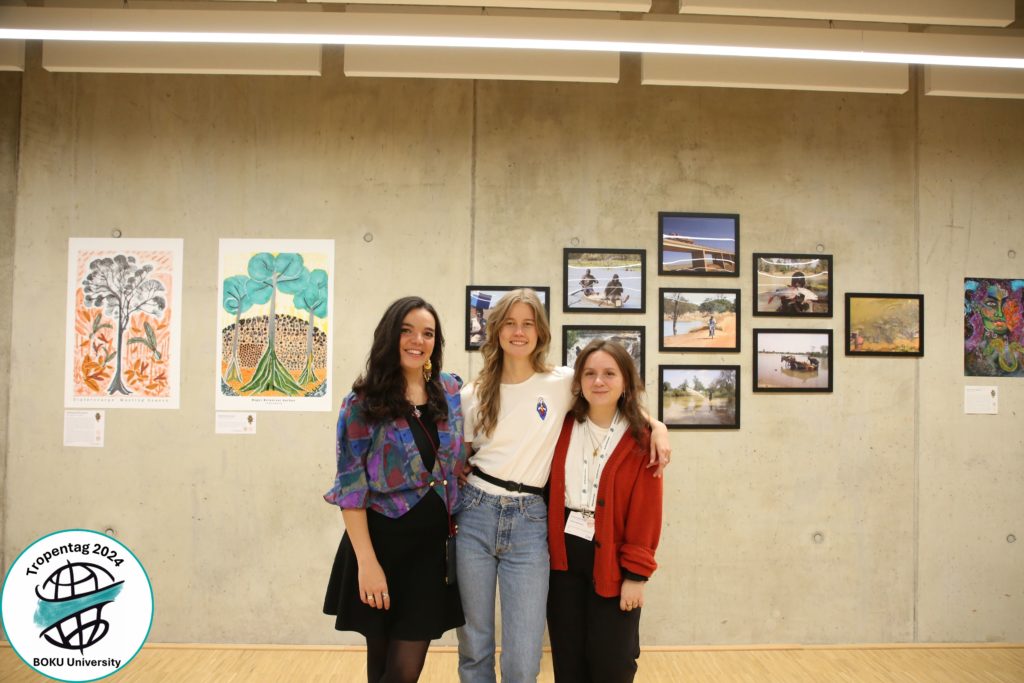
Author: Lisa Vissers

